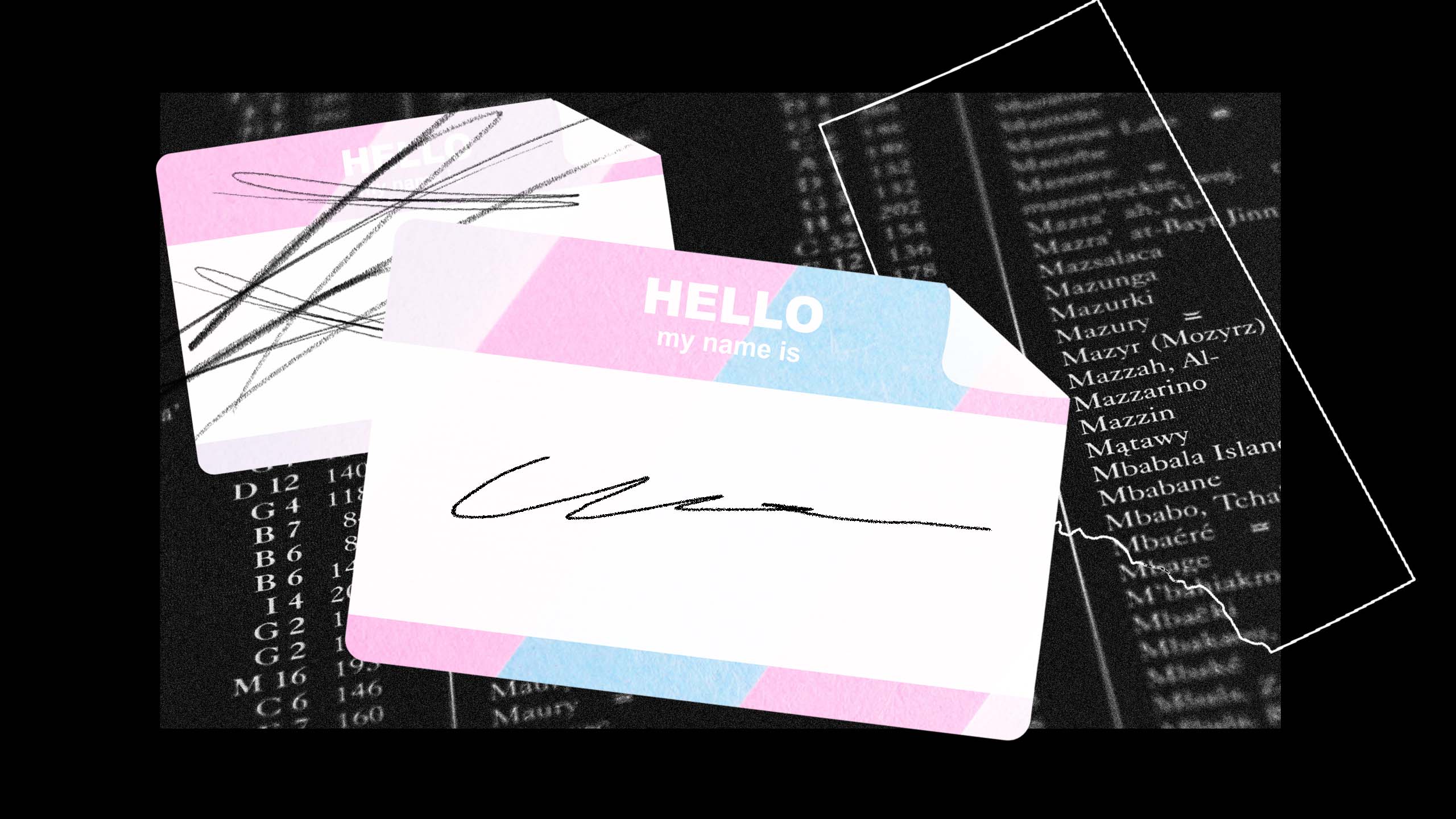Alberta launched its new online, publicly searchable teacher registry on September 1. A trans teacher I work with immediately contacted me, concerned that because it lists every legal name a teacher has ever had, and could therefore out trans teachers. She’s right.
I was strategizing about this with my very clever colleague Matt Rice, a teacher and doctoral candidate in Education. He shared that he is writing about the ethical dilemma trans teachers face: if we come out, we are better able to create safe environments for the students we teach, but when we do so, we are also putting ourselves at risk of transphobic attack. He and I both have personal experience on both sides of that dilemma.
Teachers are subject to an elevated level of public and legal scrutiny: we are judged and can be fired for our behaviour outside of the classroom and off the clock, as well as what we do on the job. Hiring processes include police background checks. We accept this official scrutiny. What I can not accept is that as the resistance to support for LGBTQ2S+ young people grows, the unofficial scrutiny and targeting of trans teachers and others who support LGBTQ2S+ youth is growing. It’s personal, it’s targeted and it’s dangerous.
I worked for the Toronto District School Board between 2013 and 2021 as an out trans person doing gender-based violence prevention, and I was regularly targeted for my work by several hate blogs. They frequently called me a pedophile for suggesting that children know who they are. My professional experience is that children are their own experts—they know who they are, what pronouns are right for them, what toys they are interested in and what name they should be called. Supporting child agency is the opposite of pedophilia.
It’s only gotten more dangerous since then. Trans people in schools continue to be targeted for being trans and working with children. School officials who are not trans, but who support trans students, are also being targeted. Recent attacks have included a school official who was doxxed and received death threats. Oklahoma English teacher Tyler Wrynn was harassed and sent death threats, and complaints that he was grooming children were made to his school after he posted TikToks supporting LGBTQ2S+ students. Right-wing hate groups have taken to targeting teachers for supporting LGBTQ2S+ students, for performing in drag and other related activities. When someone threatens you with death and threatens to come to your door, you are afraid for yourself and for anyone you live with. It’s not just your safety being threatened, it’s our children and families too. Lest you think that this only happens in the United States, let me be clear: trans people are being doxxed and put at risk here in Canada too.
In June of this year, Hamilton-Wentworth District School Board (HWDSB) non-binary teacher Mara Fabrizio was pulled from their virtual Grade 3 classroom after parental complaints that they showed a film about gender diversity during Pride Month. Their lawyer is clear that this is about transphobic parents punishing a non-binary teacher.
Even when we are not there, the push back extends to the very idea that trans people exist. A book I wrote, Transphobia: Deal with It and Become a Gender Transcender, was one of almost 850 that Texas state representative Matt Krause wanted schools to report on, remove and not receive funding for. Parental attempts to push trans books out of schools are strengthened by this kind of action, and continue to challenge young people’s access to books about trans topics.
This is the current climate trans people teach in. This is the reason many trans people who might otherwise love to be teachers choose other professions. Those who choose teaching wade into what they know is a super hostile environment so they can create a safe space for students, even if it’s only for one class during their day. They are a special kind of brave. Dealing with this level of hate on a daily basis is exhausting. Those of us who teach do so because we know that trans youth also exist in an environment of hate, and they need trans adults. They need us as possibility models for a future in which they are thriving and alive. We create space for them, believe in them and remind them that you can be trans and all manner of other beautiful things at the same time.
The Alberta Teacher and Teacher Leader Registry is a new and horrifying part of this climate that challenges trans teachers. It makes trans teachers less safe, and will turn potential trans teachers away from the profession. It needlessly and pointlessly outs trans teachers, putting their privacy and safety at risk.
On June 21, one week before the end of school, the Alberta government sent a memo to school authorities and others in education announcing that it was going to launch an online public registry listing all certificated teachers, including all legal names they have ever had. School authorities were to pass this information on to teachers. The last week of school is full of creating closure for the students, celebrating their achievements, ensuring that students who need supports over the summer have them and, for many teachers, it’s about packing up their classrooms. Teachers are laid off for the summer, and not expected to check their school board email during that time, so it’s not surprising that many teachers who might have wanted to keep their former names private missed the stated deadline of July 29.
In Alberta, the registry has come about via Bill 85, the Students First Act. The United Conservative government claims that the registry will “improve student safety and give parents more confidence in Alberta’s world-class educators” and “elevate the status of the teaching profession across Alberta by improving transparency and increasing accountability.” Let’s be clear: knowing a teacher’s former name does not increase student safety. Knowing if a teacher is trans does not increase student safety. It makes trans teachers less safe. It makes trans teachers easier to identify—and easier to target. The government’s language around “safety” invokes baseless prejudices about trans people, and while the government says that people can request their former names not be made public, they have said that this is a case-by-case process and that they do not expect to grant many of them.
Being trans often means additional steps and a great deal of dealing with bureaucracy. This can include: government name change forms, gender change forms, ensuring these changes are on every piece of ID, waits for surgery and getting locked out of accounts because your voice does not match the sex they have on record, amongst other things. If every trans person I knew got back all the time they spent on these processes, we would have such a wealth of time—think of the things we could do if our energy was not being wasted on bureaucracy. One more gruelling layer is more time, more waiting and more costs that cis people don’t often have to deal with.
Not all provinces and territories have publicly searchable online teacher registries. In B.C. and Saskatchewan, only current names are displayed in their searchable registries. Teachers in Saskatchewan can update their name here, and in B.C. here. If you are a trans teacher in Alberta concerned about having former names made publicly available, you can ask for it to be removed at this link, though, again, the site mentions exemptions are “rare”. And in Ontario, former names can be removed if “there are extenuating circumstances, such as a threat to your personal safety, reasons of personal dignity, including gender identification or gender expression.” A signed letter and supporting documentation is required to change it.
I see an increasing number of people wearing shirts that encourage people to “protect trans kids,” which is absolutely necessary. Part of protecting trans kids includes ensuring they have access to trusted trans adults, and that means we also need to protect trans teachers. Which means ensuring teacher registries don’t out trans teachers or require additional work from trans teachers. It means being vocal about valuing trans teachers as possibility models in schools. We need it, and kids of all genders need us—for some, to stand as a potential future, and for others, to create one in which people of any gender can bring our full selves to the classroom and be respected and honoured for our time, work and dedication.


 Why you can trust Xtra
Why you can trust Xtra


